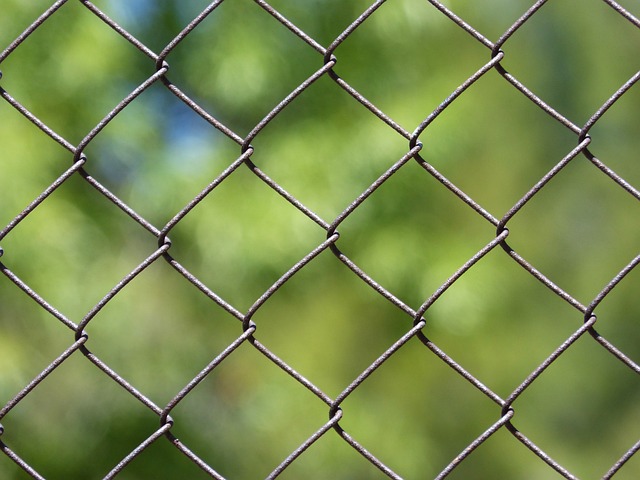In New Bedford, MA, residential fencing is not just an aesthetic choice; it’s a functional necessity. Whether to secure your property, enhance privacy, or improve curb appeal, the right fence can transform outdoor spaces. This article guides homeowners through the process of hiring reputable fence installation companies in New Bedford, exploring various fence types suited for the local climate and styles that complement architectural designs. We also delve into legal considerations, permits, and maintenance tips to ensure your new fence stands the test of time.
- Understanding the Need for Residential Fences in New Bedford
- Choosing the Right Fence Installation Company
- Types of Fences Suitable for Local Climate and Styles
- Legal Considerations and Permits Required
- Maintenance Tips for Longevity and Aesthetics
Understanding the Need for Residential Fences in New Bedford
In the vibrant city of New Bedford, Massachusetts, residential fences play a vital role in defining property boundaries and enhancing outdoor spaces. With a mix of historic homes and modern neighborhoods, many homeowners recognize the value that fences bring to their properties. Not only do they provide a sense of privacy and security, but they also offer a decorative element that can boost curb appeal. Whether it’s a traditional wooden fence or a contemporary metal design, these structures serve as both functional and aesthetic additions.
New Bedford’s diverse climate requires durable fencing solutions capable of withstanding the changing seasons. Homeowners often seek fences that can resist harsh winters and hot summers, ensuring they remain sturdy and visually appealing year-round. By understanding these needs, residential fence installation companies in New Bedford can offer tailored solutions, transforming outdoor areas into comfortable retreats or secure spaces for families and pets.
Choosing the Right Fence Installation Company
When choosing a residential fence installation company in New Bedford, MA, it’s crucial to consider their expertise and experience. Look for companies with a proven track record in your area, as local professionals are likely to understand the specific needs and regulations of your community. Reputable firms should be able to provide references from previous clients and showcase a diverse portfolio of their work.
Additionally, ensure the company offers a wide range of fence styles and materials to cater to different preferences and budgets. Check if they provide customized solutions, as this allows you to select a fence that complements your home’s architecture and enhances your outdoor space. A reliable installation company should also guarantee their work and offer post-installation support, ensuring customer satisfaction long after the project is complete.
Types of Fences Suitable for Local Climate and Styles
When it comes to choosing a fence for your New Bedford residence, considering the local climate and your personal style is essential. The region’s weather conditions play a significant role in selecting the right fencing material. For instance, a sturdy wood fence might be ideal for milder seasons but requires regular maintenance to withstand harsh winters and frequent rainfall. Alternatively, vinyl or composite fences are low-maintenance options suitable for both hot summers and cold winters due to their durable construction.
In terms of style, New Bedford offers a blend of traditional and contemporary preferences. A classic wood fence with a natural finish can enhance the curb appeal of any neighborhood. For a more modern aesthetic, aluminum or steel fences provide clean lines and minimal maintenance. On the other hand, if privacy is a priority, high-sized fences or even hedges could be considered, offering both visual and physical barriers while still aligning with the local climate’s requirements.
Legal Considerations and Permits Required
Before beginning any construction or renovation project, it’s crucial to understand the legal considerations and permits required. In New Bedford, MA, residential fence installation falls under specific local regulations that must be adhered to. Failure to obtain the necessary permits can result in penalties, delays, or even the requirement to dismantle already installed fences.
The first step for any homeowner planning a fence installation is to contact the local building department or zoning board. They will provide information on permitted fence types, height restrictions, set-back requirements, and application forms. Homeowners may also need to consider historical preservation regulations if their property is located in an historic district. Permits ensure that the installation complies with safety codes, structural integrity standards, and neighborhood aesthetic guidelines.
Maintenance Tips for Longevity and Aesthetics
To ensure your residential fence maintains its beauty and structural integrity over time, regular maintenance is key. Start by inspecting it periodically for any signs of damage, such as loose or missing pickets, rusted posts, or damaged hardware. Promptly repairing these issues can prevent further deterioration. Keep the fence clean by sweeping away debris and using a soft brush to remove any dirt or stains. This simple step helps maintain its aesthetic appeal.
Moisture is an enemy of wood fences, so apply a fresh coat of sealant every few years to protect against water damage. Consider power washing to deepen the cleaning process but be gentle to avoid damaging the fence. Pruning nearby trees and shrubs ensures they don’t grow over or through the fence, which can cause blockages and unsightly appearances. Lastly, remember that regular maintenance not only preserves the fence’s longevity but also retains its value, making it a smarter investment for your home.
